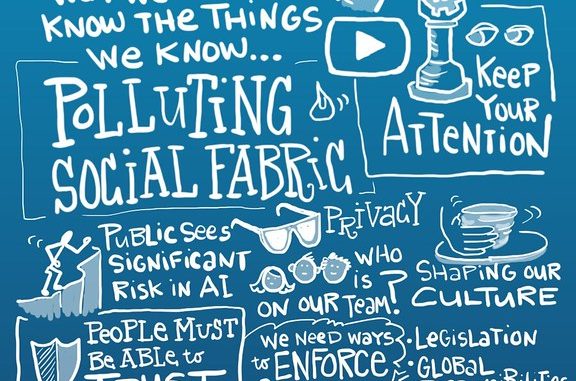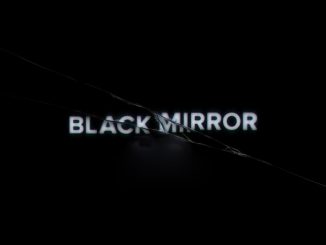
The current generation of human beings has experienced a lot of technological developments that have significantly redefined life itself. Today, information has been shown to greatly affect every aspect of life, from businesses to civil wars. Tech companies have advanced their technological capabilities to harness the power of the information they collect to achieve astronomical profits. The tech industry has been controlled by five big technology companies, namely Google, Apple, Amazon, Microsoft, and Facebook (Atkinson et al., 2019, p. 1). These companies have been attacked on several occasions due to their monopoly and power in the industry. The negative backlash or reactions against these big technology companies is called Techlash (Atkinson et al., 2019, p. 1). The following is a discussion of what techlash is and the public concerns lying behind it. Additionally, the analysis will discuss how and the extent to which civil society organisations, government and technology companies can address the issue.
It was not so long ago when big tech and technologies were seen as catalysts of change. The internet had just emerged as the global platform for innovation, while social media seemed a liberating force. Smartphones, on the other hand, were transforming people’s lives around the world. However, from the year 2010, there emerged something called techlash (Wladawsky-Berger, 2020, p. 1). Techlash is defined as a widespread and strong reaction towards the growing influence and power of the biggest technology companies, especially those based in Silicon Valley. Brad Smith, Microsoft’s president, asked, “Is technology a tool or a weapon?” (Wladawsky-Berger, 2020, p. 1) Until recent times, the answer of many had been the former. Most people view technology as a tool that is valuable and one that makes society and lives better. However, views have shifted recently, especially among the elites who are pointing fingers towards big tech companies and blaming them for the social and economic harms they are causing. Studies show that the people are far less skeptical with the current technology than politicians, activists, and analysts. Nonetheless, consumers are still lining up to purchase the latest smartphones and continue using social media at unprecedented heights. Techlash is active despite these revelations and is an important issue in society today. Techlash is manifested as the hate and harsh words towards the technological innovations but is also seen in the support for guidelines that are directly intended to inhibit these technologies.
Techlash did not just emerge extemporaneously. Even during periods when information technology was viewed as a positive and redemptive force, there were sturdy and hidden currents of techlash that were mainly from analysts endorsing jeremiads. Many books criticised technology and the fact they were a social and economic pandemic designed to destroy everything. These works formed the foundations of techlash. At the time, all they were saying sounded like utopia claims about technology. However, in 2016, the fuel for techlash inferno came in from the real events and disclosures that Russia utilised social media to interfere with the elections in the US in the same year. The backlash was further fueled by comments from technopreneurs such as Elon Musk and Bill Gates, who claimed artificial intelligence and automation pose a significant threat to humanity. For this reason, information technology is widely criticised and especially the big technology companies around the world. Techlash appears to be spearheaded by advocates, pundits, and opinion-leading elites. In the political niche, these individuals sound alarms of doom and gloom. Most of these individuals claim that big tech companies have become way too powerful and need to be controlled.
The general public may be taking part in the techlash, but their view of technology and big tech companies may differ. The recent techlash on the big five technology companies has been charged by politicians and journalists. Surprisingly, the general public still holds the innovations and these technology companies with very high regard while viewing the government less favourably (Thierer, 2020, p. 1). When asked what has transformed the world, most of the public tends to mention technology and its positive impact. However, with the increase in the force of techlash, the public is greatly influenced into not believing the big technology companies (Goodstein, 2021, p. 311). In one research in the US, it was discovered that people who believe that technology has a positive impact dropped from 71 % to 50% over the past four years as of 2019. This is a worrying sign to the big tech companies since it shows that techlash is intensifying. Nonetheless, the bigger part of the public still believes that big technology companies positively impact society. With the increase in knowledge on the workings of the internet, there is increasing concerns about techlash.
There has been a rise in negative attitudes towards the internet with the rising impact of techlash. Currently, people in the US believe that technology companies divide society and allow the interests of the powerful to take control (KnightFoundation, 2020, p. 4). This is believed to be achieved by making unpopular views visible and creating more problems than they can solve. Some of the issues pointed out by techlash include the destruction of consumer privacy by the big tech companies, exploitation of consumers online, disinformation facilitated by social media, destruction of jobs by IT, and the fact that AI is biased. These concerns have raised the alarm among individuals in public, and it is believed that techlash is the best way to ensure that these companies are monitored and controlled.
Government, technology companies and civil society organisations stand in the best position to address the concerns behind techlash. Through the power vested in the arms of the government, it is possible to come up with regulations that will ensure the privacy of the consumers is protected. Additionally, the government can formulate Acts aimed at improving the transparency of the tech companies, protecting the consumers, and stress responsible innovation. For instance, in the US, during a congress hearing with Mark Zuckerberg, Facebook’s CEO, the government agreed with him that his company would support federal regulations. Civil society organisations (CSOs) have the voice to air the public’s concerns and have them be listened to. Today, CSOs have been exposed to ICTs and have taken advantage of their positive side and, in the process, have been able to identify the challenges that are presented by ICTs (AssociationforProgressiveCommunications, n.d., p. 2). Using their position, CSOs can effectively raise concerns with the channels they have to drive change across the world. Techlash is mainly towards the big technology companies hence making them the best to address the concerns behind techlash. These companies are the ones that are spearheading the development of ICTs and have the power and mandate to develop beneficial technologies ethically. One way that the big tech companies can address techlash is by self-regulation. Self-regulation asks the companies to contemplate on the impact of the technologies on society before releasing them. This mainly falls under corporate social responsibility (CSR) (Hemphill, 2019, p. 241). In addition to that, the organisations need to be more open with the public to eliminate the privacy and manipulation fears looming among them.
Technology is a powerful tool that is capable of positive change. However, due to the increased competition in the technology world, big tech companies have focused on making more profits and forgot their social responsibility to society. Techlash is mainly charged by the public concerns about the destruction of consumer privacy by the big tech companies, exploitation of consumers online, disinformation facilitated by social media, destruction of jobs by IT, and the fact that AI is biased. These are concerns making the public side with the techlash to eliminate the exploitation of their information. Further, the fear of data breach is another cause for alarm for most consumers since they know how much of their information is held by these organisations and in case of a breach, they might lose a lot. The best way to address techlash is by encouraging responsible innovation and also coming up with regulations that ensure the companies adhere to their social responsibility.


